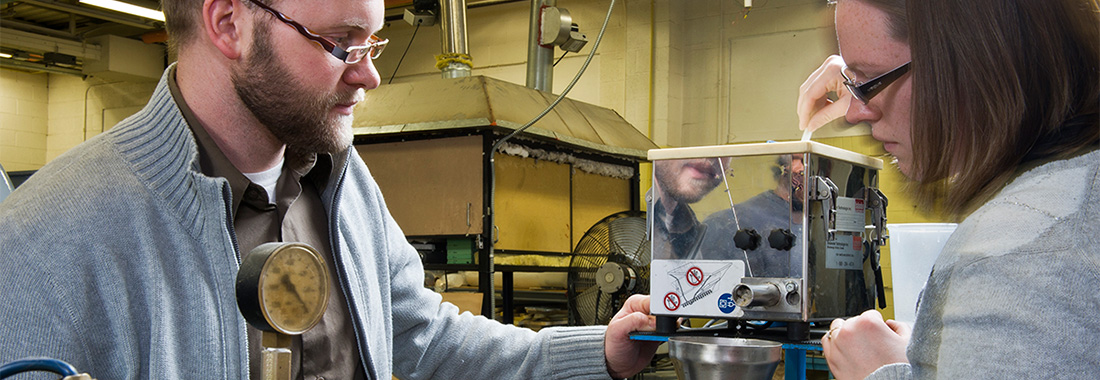Mechanical Innovations

Additive Manufacturing Composites with Flow-Induced Fiber Alignment (RFT-595)
Researchers at NDSU have developed a novel modification of the SLA 3D printer to induce fiber alignment in 3D printed products. A special apparatus was constructed and added to the SLA printer to maintain uniform fiber dispersion in each printed part. The modified configuration hosts a dual curing system that assists in uniform fiber dispersion and orientation.
View this Technology >
Novel Wire Bending Manufacturing System for Performance-Driven 3D Structures (RFT-563)
This manufacturing system overcomes the several drawbacks in the current 3D manufacturing processes and provides a 3D solid appearing structure with desired characteristics. The process is simpler and faster; the resulting scaffolds undergo periodic and/or non-periodic shape conforming during manufacturing itself, omitting the need for any additional shape conforming steps.
View this Technology >
Novel technique and apparatus for detection and quantification of biomolecules in body fluids (RFT-553)
Scientists at NDSU have developed a novel technique and device to quantify and detect low abundance biomolecules in patient samples. This technique is useful in point-of-care, cancer screening settings. The apparatus itself is compact and compatible with available imaging technologies.
View this Technology >
Rapid, On-Site, Viral Vector-Free Car T-Cell Manufacturing Gives Faster Production of Higher Quality Cell Population (RFT-538)
Scientists at NDSU have developed a small device for improved CAR T cell production, which speeds the turnaround time by enabling CAR T cell production 'on-site' at a hospital or cancer clinic. This simple, microfluidic device is easy to make and use, with an automated transfection process that takes about one hour.
View this Technology >
Reversible Adhesion System (RFT-460)
Researchers at NDSU have developed a general method to control the stiffness of the material, enabling a switchable adhesive system for low and high adhesive states.
View this Technology >
Biodegradable Soil Sensors that can be "planted" with a Seed Mixture (RFT-428)
Scientists working at NDSU are developing biodegradable sensors capable of directly monitoring and reporting the soil environment in which they are placed.
View this Technology >
Contactless Laser-Assisted Placement of Discrete Electronic Components (RFT-370)
Scientists at NDSU have discovered a method for the contactless laser-assisted assembly of discrete components such as ultra-thin, ultra-small semiconductor dies and MEMS components onto rigid and flexible substrates.
View this Technology >
Additive Manufacturing System Incorporated with Artificial
Intelligence (RFT-635)
AI-enhanced 3D printing system using continuous carbon
fiber-reinforced composites to improve mechanical strength and efficiency.
View this Technology >